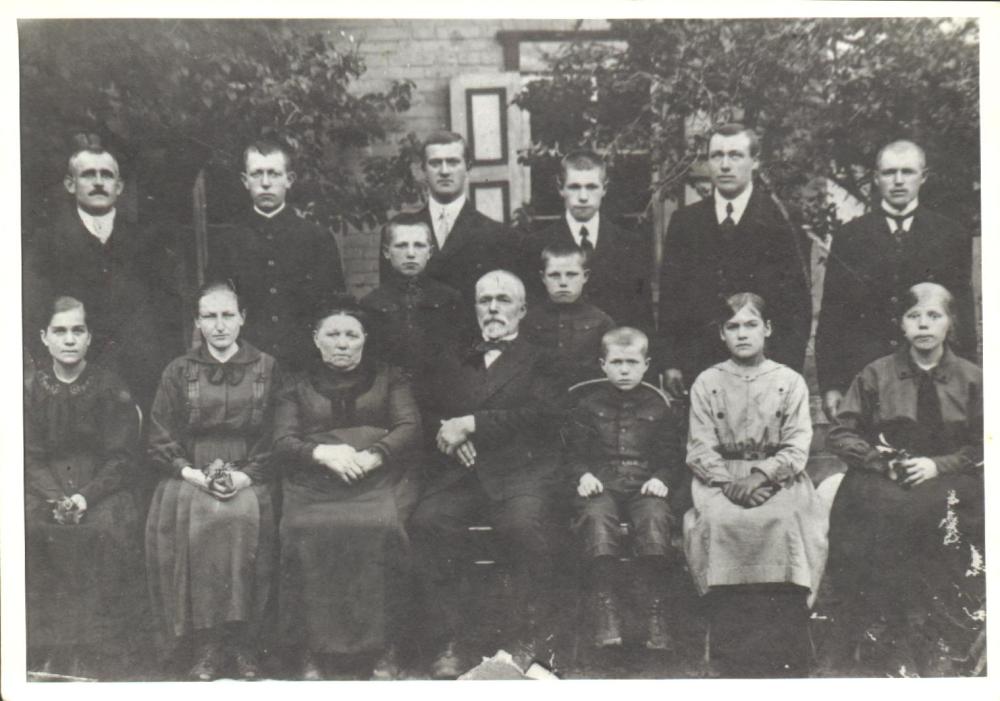COLUMN: Tales from the Gravel Ridge – When enough was enough
Advertisement
Hey there, time traveller!
This article was published 20/02/2023 (807 days ago), so information in it may no longer be current.
There once was a small rural Manitoba community that existed well enough without the benefit of a railway, or a major highway or even provincial roadway of note, nor even a major waterway that could allow for movement of goods or people by means of a boat or canoe. This community, although having experienced various changes over the years, nevertheless still exists. The place of which I speak is Rosengard, located approximately nine miles south-west of Steinbach, as we counted back in the day. No doubt it could be suggested by some that we were somewhat isolated, and in a sense we were. Most of us did not have telephone service, and as for electricity, we were not introduced to it until 1950. And perhaps not surprisingly, we had no grocery or hardware store.
What the community of Rosengard could lay claim to however was the fact that a gravel ridge of some 13 miles passed directly through our community. It provided a natural roadway for all traffic running through a part of our neighbourhood for a distance of approximately one mile.
The Rosengard School was located approximately in the middle of this short stretch of the gravel ridge, and just west of the school, within easy walking distance, was my childhood home. What we did have, those many years ago, was access to a box for mail delivery in the Grunthal Post Office, Mr. Warkentin being the Postmaster.

During the 1990s, the late Mary Dueck, née Friesen, made a point of providing me with newspaper clippings from the German language Steinbach Post that were in storage in her husband’s parental home. Mary made a point of selecting news items that she thought might be of interest to me, and indeed they were. Frequently these clippings were about Rosengard in the news column written by Mr. D. D. Ginter for the Steinbach Post.
On one occasion, Mary Dueck sent me a newspaper clipping of a letter my parents, Cornelius and Katarina Falk, had received some four decades earlier, and my parents had requested that the editor of the Steinbach Post publish this letter. This was no ordinary piece of correspondence. The letter was written by Gerhard Froese, our mother’s step-brother from her very blended family, and his wife Greta Froese. Gerhard’s letter makes reference to his own family which includes five children, as well as two other families living in “Mittel-Asien” (Middle Asia), possibly Kazakhstan. He also references a couple of other family members of whom he had no current information. What is especially poignant is the question Gerhard asks next, namely “Is my dear mother still alive?” And in addition to that, he also enquires about a number of other family members.
The letter in question was published in the Jan. 11, 1956 issue of the Steinbach Post, my parents having added the comment that in fact Gerhard’s mother Anna and other family members live in Neuland Colony in Paraguay. By way of explanation, the reason my parents requested that the letter be published was because issues of the Steinbach Post were regularly sent to the various Mennonite colonies in different parts of South America, where mail delivery was sporadic at best. It was a means of providing news about relatives and friends in Canada that might be of importance to them.
Had it not been for a reliable postal service in Canada, my family, and my mother in particular, and certainly Gerhard’s mother and family might never have known what had become of her son Gerhard and family members in the farthest eastern regions of the Soviet Union after World War II. The turmoil of the events of life in the Soviet Union during much of the 20th century was such that information regarding the fate of family members was not always readily available, if at all. I find it exceptionally meaningful that Gerhard’s letter reached my parents.
Life in the community of my childhood was very modest by today’s standards, but it is truly remarkable how well we lived and functioned within our humble circumstances, including having a reliable postal service. And it was indeed enough.
